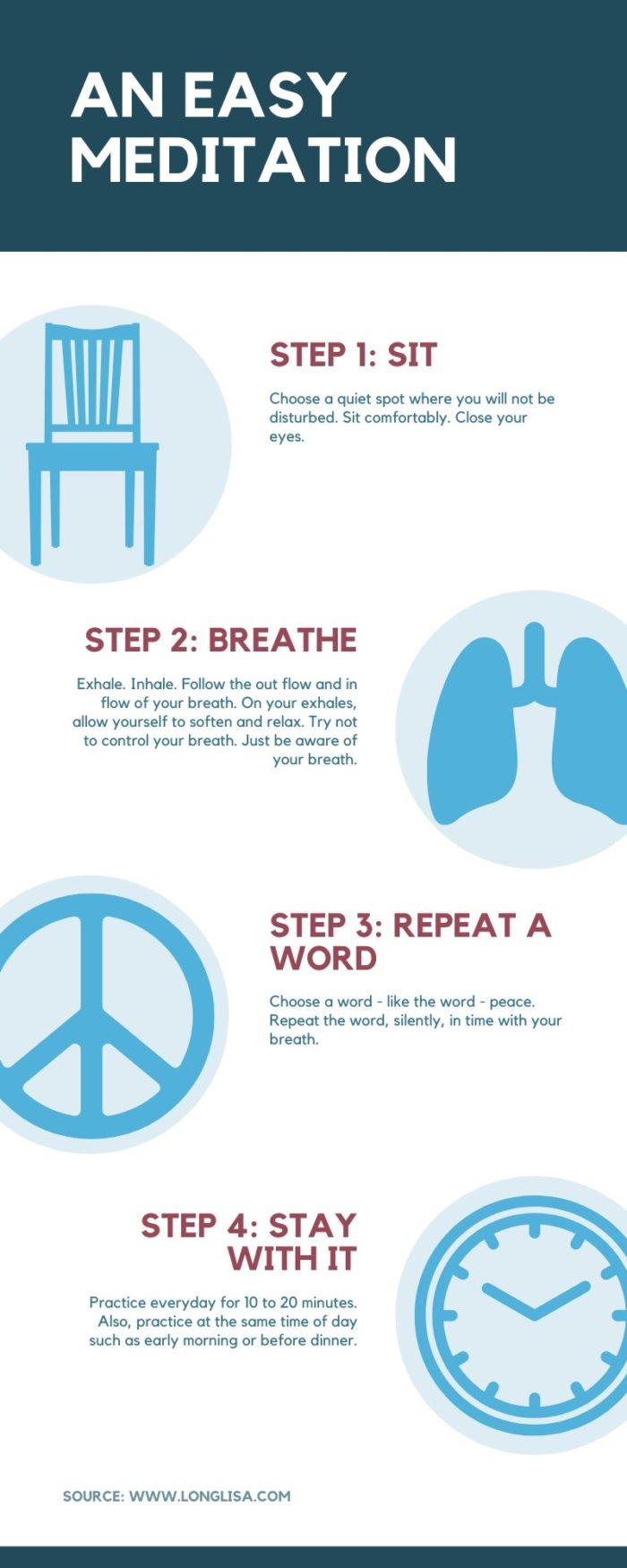3 Ways to Reduce Stress
Navigating through the unfamiliar requires awareness and skill. Often, we resort to our past experiences of how we have found our way and coped to reduce stress in our lives.
Truth be told, sometimes our old patterns, habits, and coping skills are just not working. And even with our best effort, we find ourselves continuing to amp up versus settling down.
When we are overwhelmed and just can’t shake the constant stress, we need to discover additional methods or what I like to call — tools in our toolbox — to help us settle down and reduce our stress.
We often need a new path. Or maybe we need a new set of skills or understanding to negotiate a path full of perceived obstacles.
Fortunately, our mind/body practices teach us how to find new pathways and tremendously increase our skill set. And that’s one of the many benefits of regularly engaging in disciplines like yoga and Pilates.
Calm Down Now
1First, one of the quickest ways to calm down is to move. We have heard this before. And it is great advice. Try a few of these movement ideas.
- Put on your favorite music and dance.
- Go for a brisk walk or bike ride.
- Do housework or yard work.
If you have 5 minutes and need a quick yoga movement practice to settle you down, I have one for you. I firmly believe that movement helps us feel better. You may do this practice anywhere you have a countertop – such as in your kitchen or bathroom. You may even use an outdoor table or your dining room table.
Regular Practice
I really believe movement helps. As well, consistency to our practice is important. By regularly practicing mind/body disciples, we actually shift our state of being and help, not only calm our nervous system in the moment, yet we also shift how we respond in future stressful times.
What a tremendous benefit! It’s like a two-for-one. We get an immediate benefit: we feel better. And we get a future benefit: we handle future stressors better.
If you are searching for a regular practice to increase your skill and help yourself reduce stress, considering joining me and enjoy my online offerings.
Understanding Stress
2Second, understanding stress and how we respond to stress can actually help us reduce negative stress. The more we understand actually helps us decrease our fear and anxiety.
Stress is part of being alive. It comes with the journey. I am not sure we may truly live “stress free.” In the past, I have come up with tips and tricks to relieve stress fast.
As I have thought more about stress, I realize that when talking about stress, we often evoke words that suggest conflict. For example, we use phrases like “battling stress” or “struggling with stress.” And to help solve our stressful situations, we maintain the conflict wording in our language with phrases like “stress busters” or “tackling stress.”
I wonder… what if we changed our mind about stress? What would that do? Would it be helpful?
I think so.
So, let’s dive deeper and explore a bit more with the hope of change.
Stress is often perceived as negative. Stress describes a variety of feelings, situations, and physical or mental states where we hold anxiety or fear.
Stress can refer to a stimulus or a response to a stimulus or a combination of both the stimulus and response.
For example, a stimulus might be the hot tropical, mid-day sun glaring down on me and causing my body to profusely sweat and overheat. My body is in a stress response as it tries to maintain its optimal temperature for my survival.
Now, my response to the stimulus (the sun beating on me), might have me starting to yell that I need an umbrella for protection, a cold rag at my neck, or I might just drop to the ground which would then create a ripple effect of stress as others attempted to help me (or not).
Types of stress or stressors are often grouped into (3) broad categories. Stressors can be physical, psychological, psychosocial.
A physical stressor includes injury or trauma to our body as well as environmental conditions like pollution, temperature, or exposure to disease.
Psychological stressors are thoughts or feelings we perceive as threatening. This type of stressor tends to be subjective – meaning it is based on our interpretation of an event rather than the actual event.
The psychological stressor is what we tell ourselves about our behaviors and the behaviors of others.
Psychosocial stressors are connected to our social relationships. Stress occurs from our relationship or lack of relationship or lack of interaction with our family, friends, and colleagues.
Considering the Type of Stress
I think there’s value in determining the type of stress that we are enduring. By putting a label on the type of stress, it may help us reduce our feelings of anxiety or fear.
Therefore, when you feel negative stress, consider which of the (3) stressor categories are at play in your feelings:
- physical stressor
- psychological stressor
- psychosocial stressor.
Furthermore, if you are inclined, you may choose to journal about they type of stress you are feeling as well as why you think you are feeling anxiety or fear.
Often, labeling and writing things down allows our feelings to literally – get out.
As an example, in my example above — about the sun’s heat and its effect on me, I could journal about the following:
- I recognize that the hot sun is a physical stressor. Perhaps in my journaling, I could consider ways, in the future, that I could prepare myself for the sun’s heat.
- After the event, I may continue to tell the story of how I “fell to the ground from the sun’s heat.” With each re-telling of the story, I may be building additional psychological stress. If I journaled this topic, I may discover that I could change my mind and my language so that I do not spin myself back up by relating the story.
- Finally, my stress story also has a component of how others responded (or not). This is the psychosocial stress aspect. I might journal about how I felt others met my needs or did not meet my perceived needs.
Writing about our stress and looking at it from the (3) types of stress allows us to separate a bit from the feeling of stress. I feel like the journaling gives us some separation – a bit of space.
This space allows us to have perspective on the stressor and our response. In turn, it may break the cycle of us feeling stressed.
I call it “jumping out of the groove.” We often get stuck in grooves or patterns of thought — and we keep running with that thought in a circle — just like a groove in a record player.
Our practice is to find a new groove – a positive groove that contributes to our well-being.
Settle Down Meditation
3Sometimes, even after journaling and a good movement session, our mind still won’t settle. Then, it’s valuable to see if a simple meditation will help. Try this seated meditation practice designed to help reduce mental stress.

Keep Practicing
Reducing feelings of negative stress takes time and continued practice. Our practices may include movement such as yoga, Pilates, and even walking in nature.
Also, considering the types of stressors and journaling about how we are feeling has value and provides perspective that allows us to jump out of the incident’s stress cycle.
In addition, it’s also valuable to incorporate meditation techniques to help us reduce stress. In the beginning, it’s beneficial to keep the practices simple so that we may quickly return to them, when needed, with out much effort since the practice is familiar.
Over time, you may choose to experience a variety of teachers who offer different techniques and additional valuable skills. When you are ready, perhaps explore a large online platform like Yoga Vibes where you will discover more.
To continue to live your best life, keep moving. Keep breathing. Keep taking excellent care of you.
Check These Out
Based on your interest, we've curated these articles just for you.

Snowball Fight with Buddha – Labyrinth Walk
My numbness was unbearable. Frigid hands compacted wet snow into a ball. I took aim and smacked Laughing Buddha in the head. With a roar of laughter, joy returned to my soul from a labyrinth walk at Kripalu. I’ve been here before mentally and physically. Basically, drained, discouraged, and deeply troubled, I found myself numb… View Article
4 min read

Change Your Mind
In my early years of work at a local TV station, I barely made any money. I saw convenience stores as overpriced money drains that were taboo in my life. It wasn’t until marriage, 2 kids, and a “full on” schedule that I began to appreciate convenience store culture. I guess I changed my mind…. View Article
2 min read

Relieve Stress Fast
Stress can be good. Really, I am serious. Stress can be a good thing. We’ve given stress such a bad rap, lately. It’s like the rotten step-child in a Disney move. We blame stress for just about everything. Well, like a good animated film, there’s always a happy ending where we all realize what we… View Article
4 min read

